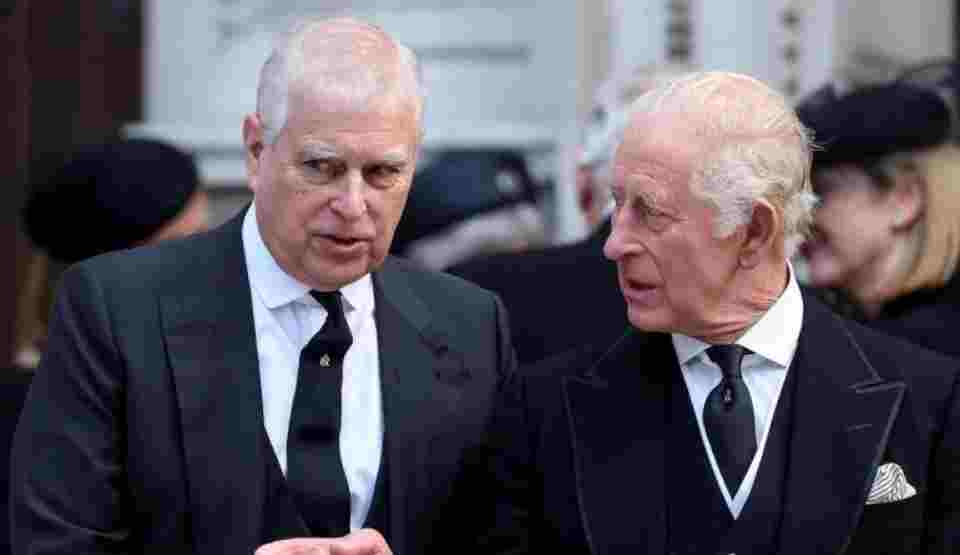By Asif Ghazali, Editor-in-Chief, Tab2Mag Magazine

Prince Andrew’s decision to relinquish his royal titles—including the Duke of York—marks yet another chapter in what has become an interminable saga of royal embarrassment. While Buckingham Palace would have us believe this represents some form of resolution, the reality is far messier and raises profound questions about accountability, privilege, and the very institution of monarchy itself.
A Choreographed Retreat
Let us be clear about what transpired. Andrew did not have his titles stripped; he voluntarily agreed not to use them following “discussion with the king.” This semantic distinction matters enormously. It allows the prince to maintain the fiction that he is acting honourably, putting “duty to my family and country first,” as his statement proclaimed. Yet the timing and circumstances suggest something altogether different—a palace-orchestrated damage control exercise designed to create distance between the institution and its most toxic member.
The truth is that Andrew retains his dukedom, his earldom, his barony, and his position as Royal Knight Companion of the Order of the Garter. These titles simply become dormant, like the HRH honorific he was previously forced to abandon. He remains a prince, eighth in line to the throne, and technically still a counsellor of state. This is not accountability; it is theatre.
The Weight of Scandal
The list of controversies surrounding Andrew has grown so lengthy it threatens to eclipse even the most determined public relations efforts. His association with convicted child sex offender Jeffrey Epstein remains an indelible stain—one made worse by recent revelations that he emailed Epstein declaring “we are in this together” three months after claiming to have cut ties. His alleged connections to a Chinese spy. The devastating posthumous memoir of Virginia Giuffre, who died by suicide in April, in which she claimed the prince “believed that having sex with me was his birthright.”
These are not minor missteps or tabloid gossip. They speak to fundamental questions of character and judgment that no amount of carefully worded statements can erase.
The Limits of Royal Justice
Perhaps most telling is what has not happened. To forcibly remove a dukedom requires an act of parliament—a step not taken against a senior royal in over a century. The palace clearly calculated that such a move would generate more damaging headlines than the status quo. So instead, we have this half-measure: titles retained but not used, honours dormant but not revoked.
This reveals the fundamental problem with hereditary privilege. Andrew settled a civil sexual assault case for millions while admitting no liability and denying wrongdoing. Yet he remains wealthy, living in the 30-room Royal Lodge in Windsor Great Park, still a prince by birthright. What message does this send about equality before the law?
Timing is Everything
The palace’s urgency becomes comprehensible when we consider the calendar. King Charles is due to make a historic visit to meet Pope Leo next week—the first English monarch since Henry VIII to pray publicly with the pope. The last thing the palace needs is Andrew’s scandals dominating headlines during what should be a moment of diplomatic and symbolic significance.
This is crisis management, not justice.
The Verdict
Anti-monarchist campaigners are right to call this move “too little, too late.” Andrew remains accused of sexual offences and abuse of office. Not using “silly medieval titles,” as Republic campaign group aptly put it, is hardly a punishment befitting the allegations.
The monarchy faces a credibility crisis of its own making. By protecting one of its own through legal manoeuvres and semantic gymnastics, it demonstrates that the institution values self-preservation over accountability. Andrew’s victims deserve better. The public deserves better. And if the monarchy wishes to remain relevant in the 21st century, it must do better.
Until titles can be fully revoked, until real accountability replaces managed retreats, and until the institution proves it values justice over image management, the Andrew affair will remain what it has always been: a damning indictment of privilege unchecked.





